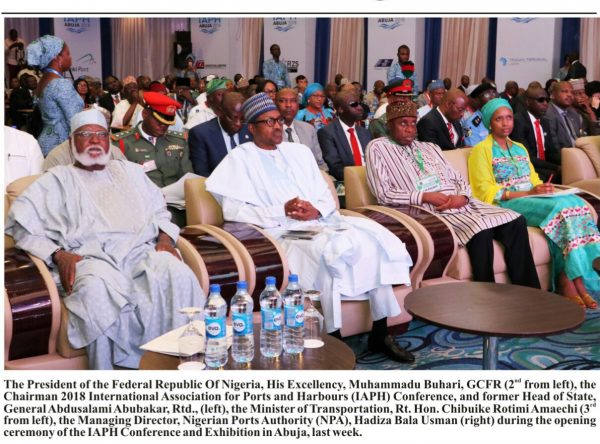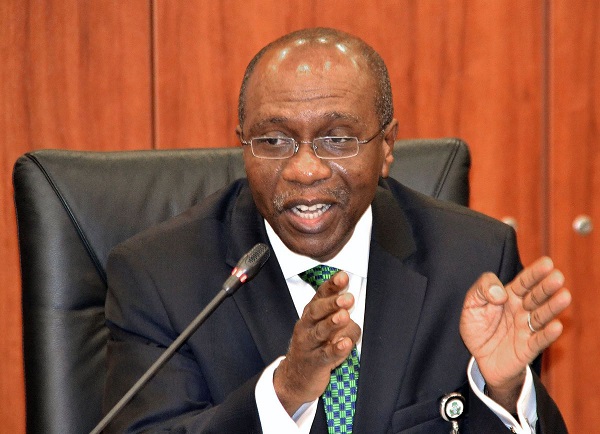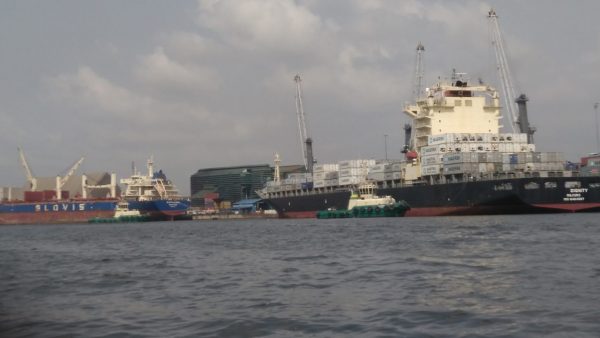Ports , Harbours Connectivity Conference Ends Without Radical Solutions To Lagos Ports Crisis
 The prevailing port access traffic problem in Lagos ports resonated across all the participating countries at the just concluded inaugural African Regional Conference of the International Association of Ports and Harbours (IAPH), that it triggered some sense of urgency in the theme of the event , and thereby compelling participants to resolve that African countries should prioritize investment in ports and evacuation infrastructure to facilitate hinterland connectivity and achieve positive economic growth.
The prevailing port access traffic problem in Lagos ports resonated across all the participating countries at the just concluded inaugural African Regional Conference of the International Association of Ports and Harbours (IAPH), that it triggered some sense of urgency in the theme of the event , and thereby compelling participants to resolve that African countries should prioritize investment in ports and evacuation infrastructure to facilitate hinterland connectivity and achieve positive economic growth.
Although the conference which has been adjudged successful by many participants and rating indices did not seem to have provided any radical solution for Nigeria to deploy in solving the Lagos port access menace. This was against all expectations, according to some participants.
The conference with the theme: African Ports and Hinterland Connectivity which took place in Abuja between 17 and 19 of September, 2018 noted the need to develop sustainable multi-modal transport linkages with emphasis on rail, inland waterways and pipeline infrastructure, while insisting that connectivity for economic growth, expansion and integration should be viewed from the perspective of domestic, sub-regional, continental and international trade domain.
To maximize the benefits of the multi-modal transportation initiative, the conference called for cooperation and synergy between littoral ports and dry ports in the African region to improve hinterland connectivity even as the need for sustained promotion of the ideals and objectives of Corridor Management Institutions (CMIs) was emphasized.
Appreciating the place of environment in the quest for effective connectivity, the participants emphasized the need to consider measures aimed at sustainable environmental protection as the ports and transportation network develop in response to increasing demands of logistics, connectivity and regional integration
Calling on all the IAPH members to build infrastructure models that will domesticate environmental compliance processes with regard to the peculiarity of the African situation, the conference sought the need for African ports to develop capacities for standards that are comparable to global best practice
Observing the huge infrastructure gap in Africa the conference called for the introduction and strengthening of private sector participation (PPP) in the ports to improve dilapidated port infrastructure and improve efficiency in port operations.
The conference resolved that there is need to create awareness and take measures to mitigate the negative effects of marine pollution and environmental degradation that could harm the population.
The conference x-rayed the benefits of the emerging deep sea ports across the African countries and resolved that countries need to look into the possibilities of partnering to develop regional deep-sea ports.
The participants saw the need to incentivize dry port and off- dock terminals usage to create volume traffic as done in the case between Dakar Port Authority and Bomako Port in Mali, while propagating the need the need to encourage women integration and capacity building in the maritime sector.
The conference further resolved that strengthening corporate social responsibilities between the ports and ports community through incentive packages that will make the communities ambassadors of ports should be encouraged.
The conference was declared open by President Mohammedu Buhari who encouraged participants to see their participation as privileged and the need to serve their countries with optimum loyalty in ensuring they contribute their quota to trade facilitation and total integration of African economies.
Nigeria through the Nigerian Ports Authority(NPA) hosted the African Regional conference of the International Association of Ports and Harbours (IAPH) which was declared open by President Mohammadu Buhari under the chairmanship of the former head of state, Gen. Abdulsalam Abubakar (Rtd.)
According to the Managing Director of NPA, Ms Hadiza Bala –Usman, the theme, “African Ports and Hinterland Connectivity” was chosen in recognition of the importance of ease of cargo transfer from port to the destination of use. “For ports in the region, I think their potentials is in the deployment of multi-modal means of transportation to ensure that cargoes are moved to the satisfaction of the clients.”
Elected as the Vice President African Region of the association in August 2017, the 61 year old association was formed to promote global interest of ports worldwide and to build a platform where ideas on international best practices with regards to port operation can be shared.
Speaking on Nigeria’s expectation from the conference Hadiza said, “We intend to have clear policies in terms of hinterland connection with the seaports. The situation we have in Lagos with the traffic gridlock in Apapa emphasizes the need for such intermodal connection and intermodal transportation system for cargo evacuation. WE believe that this is the singular solution to decongesting any port. As long as we continue to have high volume of trucks plying the port access roads, we would continue to have this congestion. We should be able to make the government understand that prioritizing hinterland connection is paramount for any port to operate efficiently. The notion that ports should be isolated from hinterlands seems to be what our government understands. NPA has been mandated to ensure optimum efficiency of the ports but there are no provisions for the hinterlands”..







